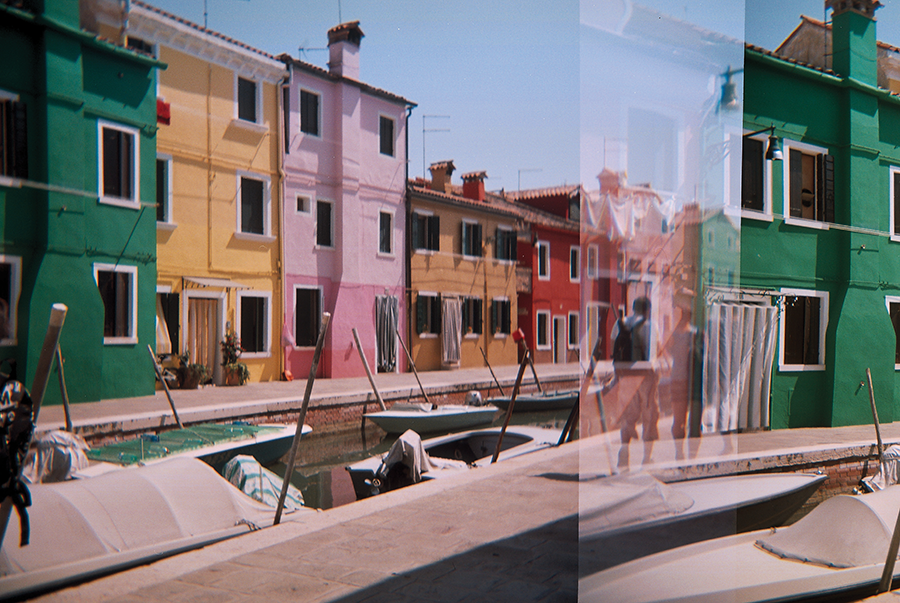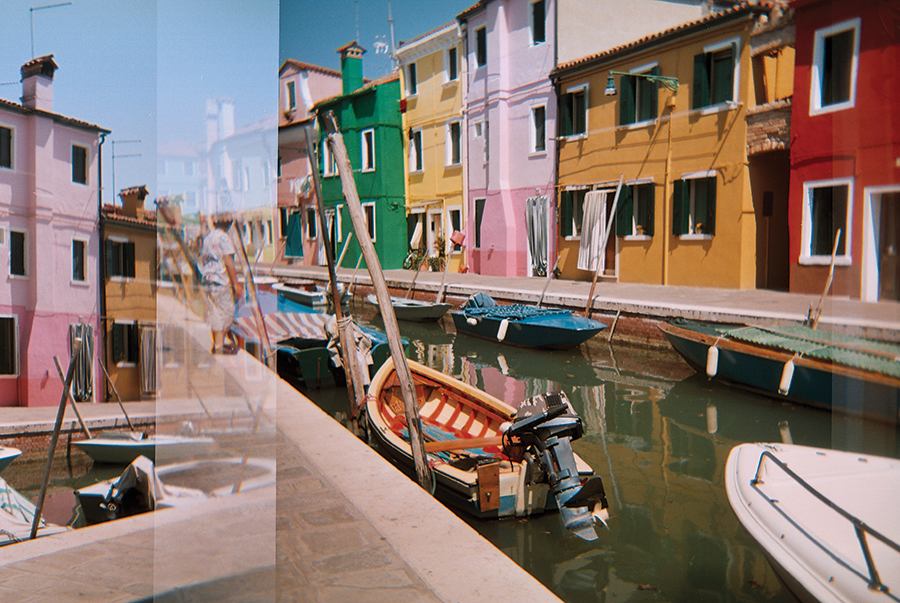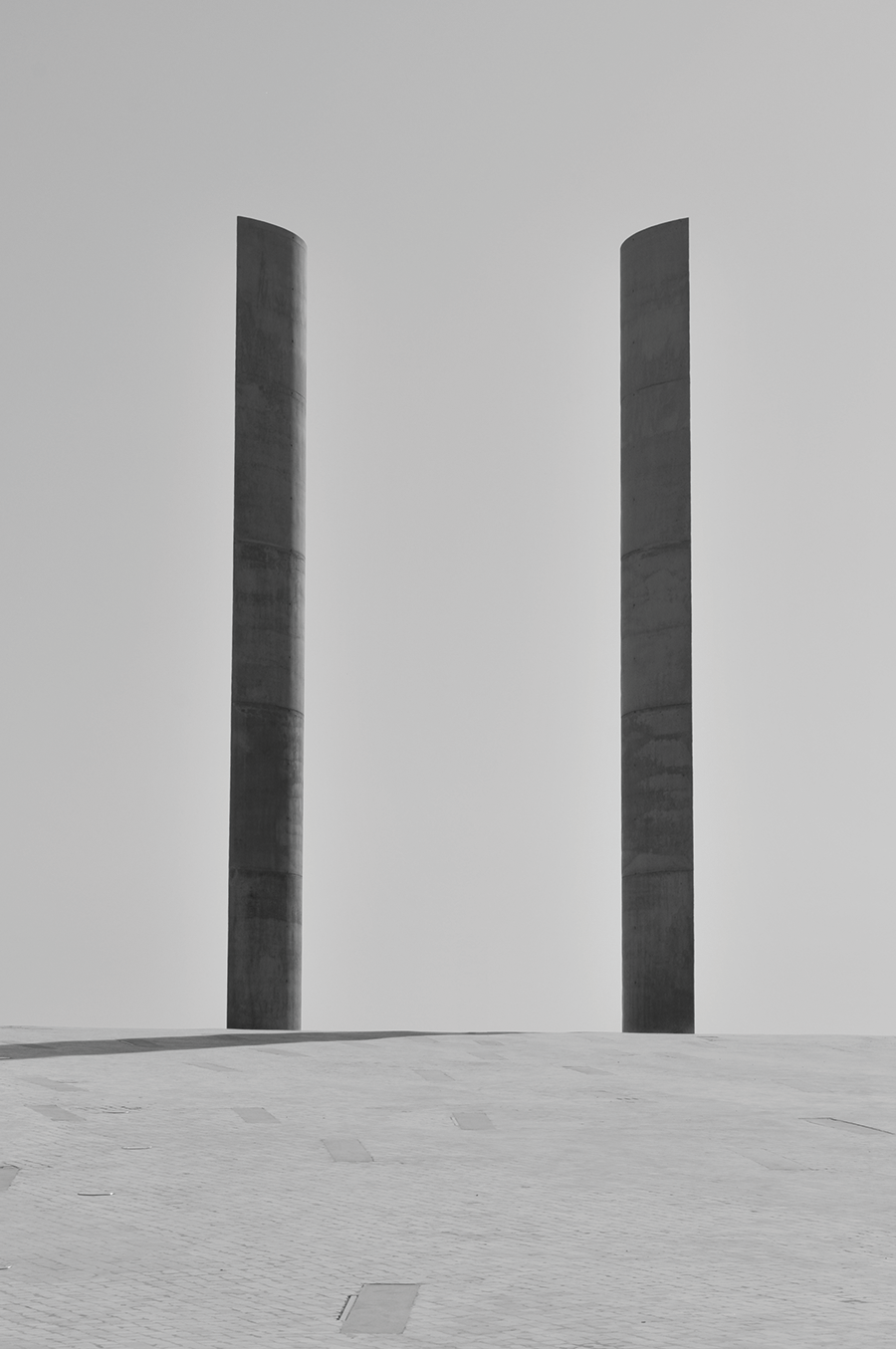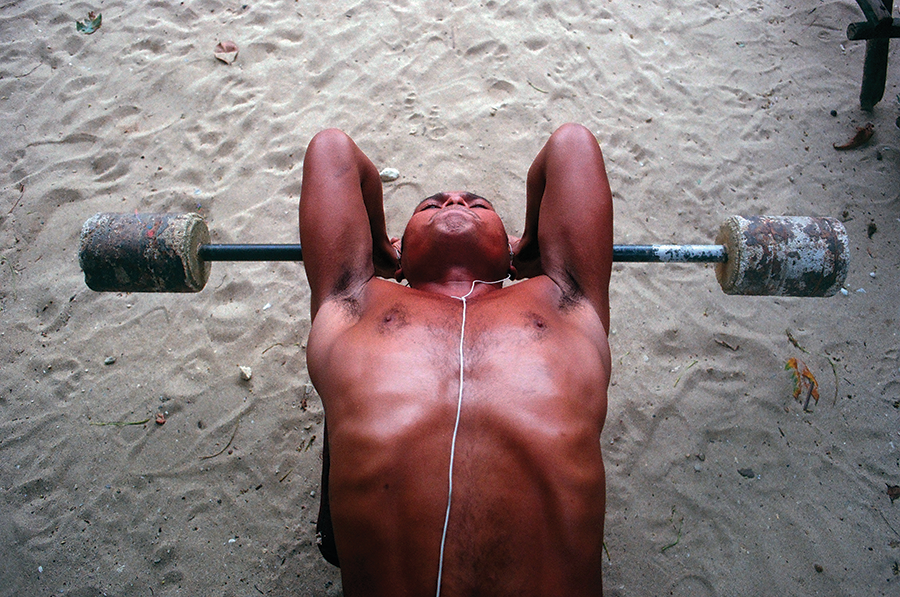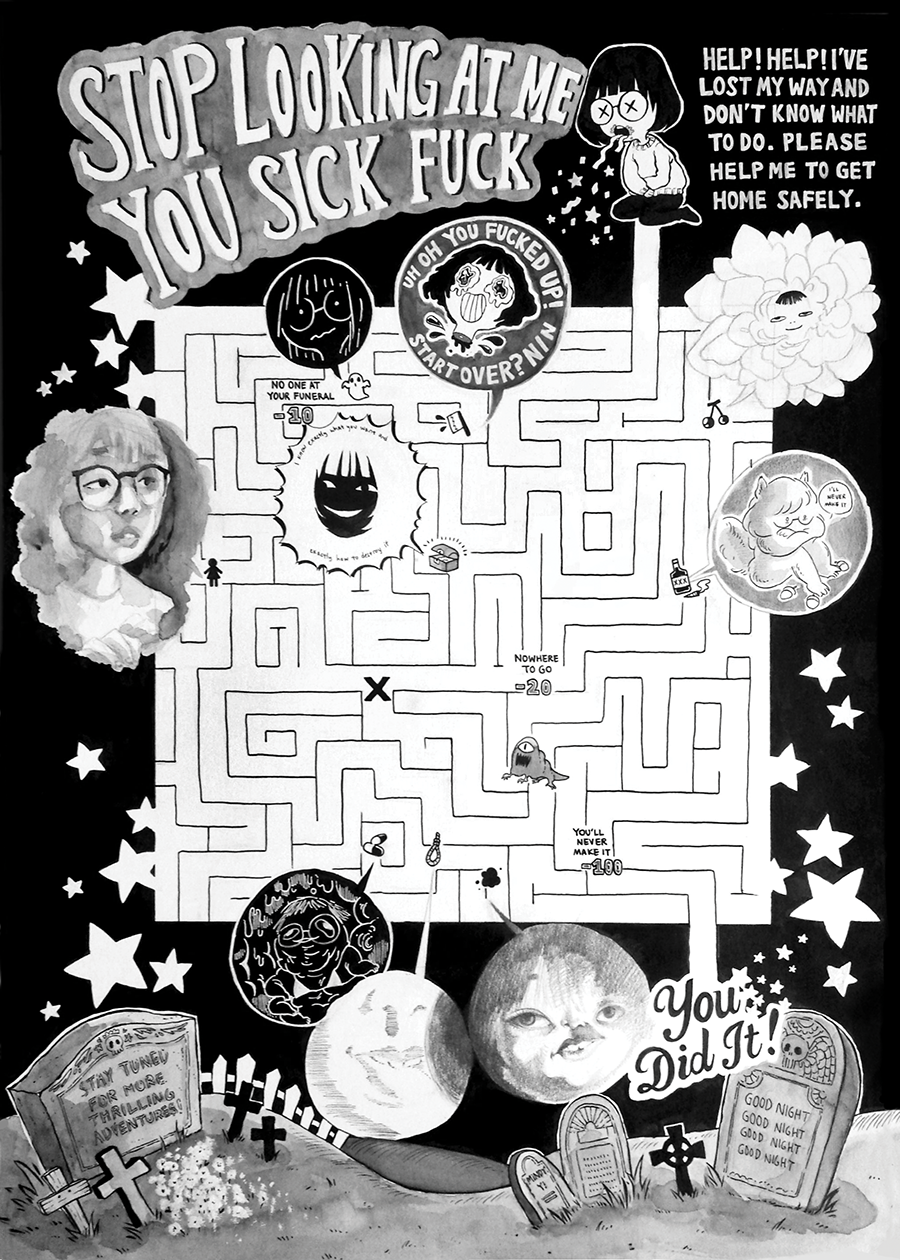Commencement 2014 Issue - The Harvard Advocate
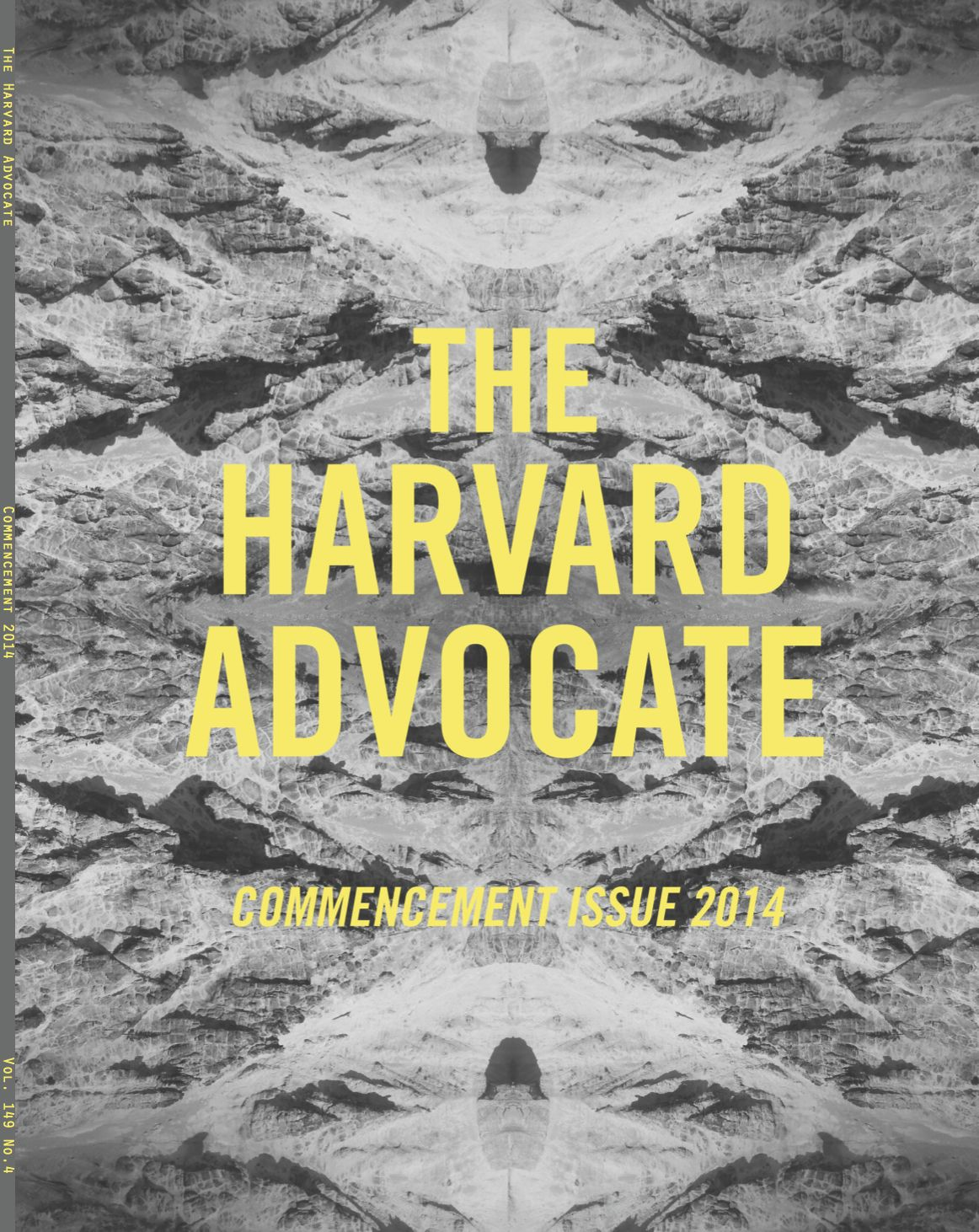
Poetry • Commencement 2014
In the end, all maps, self-led by vestigial scent,
melted or forgotten, caressing their digital sisters—
the ones with aptitudes, subtracting the call of danger—fail
to render. The mapmaker pretends to engross in
topography, moves out of state, divorces & takes
up with a sultry 3rd dimension, sprawling in her loft & breathing
cigarettes of middling price & quality. They make love.
Sibling to yawning July, the drought built to last.
The photographer skirts the outskirts, compiling as he
pleases: their streets, their sisters, the upset grass,
the amoebae in the sky—always so far?
He learns that content & content
are not always the same; his sister morphs into
a mailbox (empty). I have no interest in the Messiah, he says,
unless He creeps into Street View
rifling his leaflets & then I’d have to digitally scan Him.
The 3-D version, still in development,
will include an immersive Danger Zone—
we can’t get to Syria, except by the News,
which is a different design—
there is no tab, a simulation will have to suffice:
the pucker of loosened gravity,
the click & drag & drag & drag . . .
The photographer, which is us, spares no one,
remembers his father mostly for the cigarettes,
he bridges the gaps in memory with real dyslexia.
What street, what ‘burb could surmount the creeping din:
explosions of nothing, words of nothing,
each surveyed road calling ghosts too stupid,
too gone to cry out: Google Map for a Google Earth?
Somewhere out west, two hours from where he was conceived,
then born, then switched into a long range
of broken sisters, the cropped shadows, chopped pixels,
he sees another. I have too many grounds yet to cover, he says,
I am misunderstood.
Poetry • Commencement 2014
I.
Self-deception police wear red
slippers and yellow suits Comet-gliding
through rain Nodding diplomatically to the dog, never acknowledging
you Hiding parking tickets in side mirrors, bovine
contortions as you chew, the trapeze-like idiocy
of your laugh Arraigning you for existential
exhibitionism: to engage in philosophical despair
II.
publicly. The how of mind
misinterpreted as the what Hypostatizing
why Deleting the unparticular
from the person, the unmotivated act
from matter Green-eyed howling
stranded in the howl Either instinct
or speech inside the un-self-knowing violet-barred
III.
God-cell. The origin of skepticism
in the recurrent sprawled-by-the-heater
dream in which Kafka is the mailman and the mail
is your mother Appears again the slaughterer
of perspective and mood, the categorical
rejection, the eternal human ironed
and exported Hanging like community service
IV.
from your father’s coat hanger. Solitary
suppression of reality, antidoting
mystifications of the girl you used
to know the girl you never knew
the introjected girl picking violets Peering
through chain-link vivisection The girl
converted into self-discipline and logic, metaphorical
V.
God-fearing dogma. The tame in us murders
Fiction • Commencement 2014
I’m here to answer questions about men’s urinals, not about heroin addiction. That’s what I should have said. I should have said that, and put a ‘sir’ at the end, and then cut the call off, or referred it to my supervisor. And then I should have gone back to wait for the next blinking light on my screen to ask about replacement flushometers for our discontinued wall-hung models.
I could say the guy sounded really desperate and I couldn’t just do nothing, but that would make me seem like a better person than I am. Or I could say what Marla says, though not the way she says it. A girl like you, she says, by which she means me, with problems like yours, by which she means Ray, needs someone to talk to, by which she means someone other than her. Whatever it was, this guy called up and my screen blinked and I answered and I stayed on the line.
“I’m a heroin addict and I need help,” he said.
“Sir, this is the information line for Sani-Fresh Sanitation Systems,” I said.
“Oh,” he said, and then went quiet for a while. I could hear ghostly voices as other calls bled into my line. “What’s that? “We make those little round deodorizers that go in men’s urinals. We make other things too, but that’s our biggest seller.”
“Men’s urinals,” he said, then coughed. “Men’s urinals. Are there women’s urinals?”
“Yes,” I said, “but they haven’t really caught on outside Malaysia.”
“Deodorizers?”
“In the industry we call them urinal cakes.” I’m the only one here who would say ‘in the industry.’ Most of my colleagues (they wouldn’t say that, either) are telemarketers, hired ears willing to work phones for anyone. But I started at Sani-Fresh in a summer internship program for sanitary engineering majors, and just stayed on after.
Anyway, I learned a lot during my internship. For example, I learned a way to respond when people say ‘sanitary engineering’ is just a euphemism for ‘janitor,’ like Ray often did after he moved in with me. My supervisor told me to ask what these people do for a living, and then make some simplistic comparison right back. So I tried one last time to explain to Ray that SE is an actual field, populated at the professional level mostly by environmental engineers, along with other kinds of engineers and a few people with specialized degrees like the one I’m working on. Then, when that didn’t work, I tried my supervisor’s way. I said, Does graphic design mean just doodling, and he shut right up.
Fiction • Commencement 2014
I was nine years old when Wairimu, seventeen at the time, left the letter to our parents on the coffee table so that it was the first thing you saw as soon as you had entered the house. It was Easter weekend, so nobody saw it until Saturday morning when we returned from Good Friday overnight prayers at church, by which time Wairimu had filled a bag with her clothes, stolen the money kept in the kitchen for daily purchases and made her escape.
Fiction • Commencement 2014
There was something about Peter’s clothes that attracted the moths. It was his scent, he thought. It had changed: there was some new chemical he released into the air. His most recent bedmates had com-mented on the aroma of his skin.
“Like Sweet Tarts,” one had said.
“Like dill,” said another.
He noted that certain of his clothes -- his cashmere cardigan, originally his father’s, and his red cotton shirt -- were especially popular among the insects. His shirt had been wearable until holes began to proliferate around the nipple area; Peter quartered the shirt and added the pieces to his pile of cleaning rags under the kitchen sink. Others evinced signs of life: a collar, burrowed-through, an opening in the armpit, a bundle of loosening threads. Peter did not mind much. He liked the way the moth-holes made him look worn, old, professorial. (He was only, in fact, a young lecturer in English.) At night, as he read by lamplight, pen in hand and cold stout on a coaster next to him, he would be pleasantly distracted by a moth beating about his head, wedging itself in the gutter of his book, landing on his shoulder to lay, he presumed without feeling the need to discover, many eggs. Looking down the bridge of his nose through his wire-rimmed glasses, Peter would continue to read, stopping once or twice to shoo the moth away from his pages.
He lived with the Colonel, a grey and black tabby he had adopted from his last lover. Gerard was from Arles, where the Colonel had fed on live mice, fish bones, and goat’s milk. He had stalked birds in the street and meandered among Roman ruins, which bore graffiti by teenagers tired of their city’s age value. In Peter’s small apartment crammed with books, the Colonel paced back and forth in the living room, bored and angry. He expressed his frustration by refusing to use the litter box to defecate, unburdening himself, instead, on the sheets of paper strewn across the floor near Peter’s writing desk. In the mornings, the Colonel would leap onto the kitchen counter and snatch the bread that popped out of the toaster. Peter usually left the toast to the cat, but had taken to guarding his breakfast cereal with a butter knife as he ate and read the paper.
The moths were the Colonel’s only entertainment and solace. He began to sit in front of the television whenever Peter turned it on; he knew the insects were attracted to the light. When the moths neared the bright screen, he would jump and deftly pluck them out of the air, his fur standing on end from the television’s static. He also spent more time around Peter, who could be trusted to have at least two moths circling his body at any moment. Peter, however, misinterpreted the Colonel’s proximity as an indication of their budding friendship.
For the most part, they lived together peaceably -- Peter, the Colonel, and the moths. Man and cat both missed Gerard, who had left suddenly after having lived with Peter in his apartment for almost a year. He had left with very little: one suitcase which, inconveniently, did not roll, for that was the retrograde style of the day; and his straw hat, which was recognizable by its broad brim and thin black ribbon. Everything had been packed before breakfast, before Peter woke.
Features • Commencement 2014
“That’s how high it came,” the lady says, pointing at a faint brown line drawn straight by the waves, high across the exterior of her broken house. She gives us water and lukewarm orange juice, and we do our work.
The woman’s fake eyelashes caught my attention as I dug away the mud. Half of them were still clinging on, although most of those remain- ing were half-hearted in their fight, drooping in strange angles from the side of her eyes. She was in her late twenties, and she was there for a week. As we carried back the sacks of dirt back to the white, beaten-up truck, she told me that her arms and thighs were sore from all this carrying. Usually she was a stylist, and she picked out clothes for wealthy women in Shinjuku. She was also known as the one who had the portable air shampoo. When evening came, women flocked around her large orange suitcase. One by one we took turns to sink the prongs on top of the air shampoo bottle into our hair. Water wasn’t running in the tsunami regions, then.
With her holding the other edge, I concentrate first on removing the tatami. The straw mats are light when dry, but hard to get rid of when sodden with seawater. Too delicate to remove by machine, but too heavy for easy human removal, tatamis were usually one of the last pieces of debris left in tsunami areas. I was too weak to carry it alone. Thin slabs of tatami dotted the beaches of fish- ing villages, attracting flies. Sometimes, a tatami would split in the middle of a removal, presenting a mass of maggots and dirt wriggling at your feet.
The ground left after a tsunami has a fine, gritty texture, dried dirt peppered with slivers of plastic and wood. We all try to move efficiently. I scrape away at the first layer, rubber strips peeling away from the metal of my shovel. Mud from the bot- tom of the sea bed, hugging asagao plants and tomato plants in the garden. I throw the dirt into a sandbag. There is just so much sludge. At first, teams talk amongst each other, commenting on the thickness of the toxic waste, the photographs. But after a while, we drift into silence.
When we left Tokyo for the tsunami-stricken regions in the north, the bus stalled, waiting for a man to run on. He was a salaryman, 30 or so. He carried a big duffel bag over his Comme de Garçons suit and shirt. Snug in his arms were metal lined boots, minted fresh, and he slung his regular bag to his back so he could carry the duffel bag with convenience store food in his arms. As he sat and the lights dimmed on the bus, he muttered apologetically that he had to finish something overtime. No one really heard him, and the bus left for the north.
II
Aftershocks are fairly dependable and predict- able, unlike earthquakes. Their occurrence and magnitude follow certain empirical laws, and the number of aftershocks can be trusted to de- crease in time. In 2011, in the month of March alone, 2941 aftershocks rippled through Japan. Ten days after the main shock, there were only a tenth the number of aftershocks that rocked the island on the day of the quake. The release of the energy resulting from the fracturing of rocks relieves the stress at the earthquake’s focus, but also transmits the energy to nearby rocks. This causes new stresses in rocks, stress that had never existed before.
When I left there was a big debate going on about whether young people should even go to the north to help out. Stereotypical disaster guilt. Fresh-eyed volunteers would arrive in a disaster spot just to leave a few days after, to satisfy their own need to help out. Going home to Tokyo, chanting that they had done what they could, and promptly forgetting whatever they had seen, except to humbly mention that that they had been there and had tried to help. Pundits argued. Newspapers proclaimed that the youth were apathetic. Groups on college campuses rallied and sent busloads of their students up north to retaliate. Loads of volunteers kept on pushing their way to the grimy truck heading back home, and girls in makeup back home played guessing games to figure out whether that last aftershock was a 4.5 or a 5.0. Why go. Why stay. Why leave. Why do we remain?
In April my mom drove me to the big Costco out in Makuhari and bought me a good sturdy jacket and dozens of air masks—she tried some on herself, noting that the air in the north was toxic, according to national television—and heavy boots, and a duffel bag full of dried food. I asked around and found myself accidentally at a Peace Boat gathering, an organization that usually ships students around various continents on a big cruise ship to volunteer for a meaningful experience. They suspended their usual activities and were organizing volunteers to go help out with tsunami relief efforts. I wasn’t sure about the meaningful experience but they were the only organization that took those under the legal age—twenty. So I sold my so-called interpretive skills, and was told that I could be helpful, since there were a lot of foreigners helping out. I was on a bus the next day.
After the earthquake in Tokyo I heard dozens of stories about what it was like in the north. Don’t tear the photographs of boys in sodden bowl cuts, stories stamped and sodden. You will meet people who had seen cars being dragged along six foot waves, filing up with water, with people in- side them. Women who had to leave their bedrid- den parents on the ground floor as they escaped upstairs with their children. How fast it must have seemed, to run up the stairs, and leave a lifetime of photos behind. A few minutes of warn- ing. And troops, troops of volunteers, stamping across toxic mud. The famous flying bus, lifted up into the sky by the waves and balanced on top of two twelve story buildings. Volunteers march- ing with Kodaks and Nikons. Tetanus, through a thin sneaker, by kitchen knives sharp and still hidden in the mud.
III
When I went back three years later, everything had changed. The streets were cleared of rubble, and I couldn’t find a trace of mud. The gargantuan towers of car metal and truck were gone. I visited the headquarters of one of the local news- papers. Their building looked half-done. It was spanking new on the bottom and old and wave- torn on top.
I entered their machine room in the basement, led by a reporter who had been in the building the day of the quake. There were three printing presses, all of which went under a few minutes after the shaking. As their basement filled with water, the newspapermen were silent, and they clung to the windows on the highest floor of the building. They saw cars and trees pass. As soon as the black water receded, they would go down and survey the damage. They would divide into teams and go out to their neighbors to record, as quickly and accurately as possible, the typeface information: the number of dead, the locations of shelters and those still living. But their only means of doing so was underwater, and their ink was staining the mud of the sea.
So the bureau chief bit his lip and unfurled a man-sized roll of paper—thankfully, the paper for distribution was stored on the second floor— and took out a big fat marker. The newspaper- men looked at each other, and they watched as their chief hauled and balanced his big body over the clean white expanse of machine-use pa- per. He drew a shaky box on the right side with the marker. Inside it, he wrote:
March 11th. 2011. The pen squeaked.
He kept on writing: numbers, figures, locations. The junior bureau chief took over when his hand was tired, and the next junior member after that. A fifty-year old Japanese man’s handwriting is not the most legible thing in the world, but it had to do. By the next day half of the bureau wielded markers and pens, while the other half were out gathering information. Beats, jurisdictions, as- signed topics—assignments and who-wrote-what didn’t matter anymore, as half a dozen reporters collaborated on one handwritten article. On one sheet, a sentence would break off, and the thick, tired dashes of a masculine hand would twist into the thinner swoops of a female reporter. With no backshift, mistakes were crossed out in red ink. This is how they did it before, they told each other, as they took shifts to prevent cramping. This is what we have to do. As soon as a sheet was finished they sent a runner to pin it on the bulletin boards of relief shelters.
A week passed until they were able to find a print- ing press that worked. Three years later, the first sheets that they had hand-written were on their way to Washington D.C., to be preserved for posterity. On one of the sheets were lists of names,
names of those who were in a specific relief shelter. “There were too many who passed,” the bureau chief said. He pointed to a few names writ- ten by a shaky, smudgy hand, and told me with an embarrassed smile that that was his writing. “At that point, it was more important to chronicle the living.” But the living names would go unrecognized in D.C. And soon the living beings those names represented would pass, and then the paper would simply be paper.
IV
There’s a blue bridge that crosses into a wide street next to my house in Tokyo, and the river is lined for a mile with persimmon trees. A name- less man planted them after the war, and when you bike down the street, every other tree flashing by would be a thick persimmon tree, followed by a cherry blossom tree. Come autumn, thick, waxy leaves bundling orange persimmons would collect on the gravel roads, and come April, drudges of pink-brown blossom petals would line the concrete encasing the river, and stink.
One April afternoon after the quake I crossed over the bridge on my bicycle, heading home from school. I heard the whirring of a bicycle behind me, and a man’s voice saying that I had dropped something, stop. So I stopped and the man’s voice came closer, and I felt something, a petal maybe, touch the back of my neck. But it was the man’s finger, and he was asking, “What color is it?”
And I answered with a rush of adrenaline and my foot stamped on the pedals, but his arm was wrapped around the head of my bicycle, his thumb on my brakes. The light touch moved from my neck to my collarbone. With that I swung my leg off my bike, surprisingly easily, and I started to run. I wondered if they recognized what was going on. The grandmothers in motorbikes, buzzing along in their white, plastic helmets. The boys playing with insects on the gravel. The pastel colored houses snug right next to each other, pushing bicycles and schoolgirls through their narrow streets. Middle-aged couples talking to their pets. Looking up, then look- ing down.
I reached the front gate of my house, and his voice turned into an image. He was on a slender red sports bike, and he wore a yellow shirt. He was waving at me, and his grin blended into a white flash as he sped past. “I’ll see you again!” he said. The police came to my house and asked if I was wearing a skirt while I was riding my bi- cycle. A week later I left for the north.
In the morning we had camp-wide morning exercises, radio calisthenics. Just like the old days. We spreaded out evenly across the university yard and picked our patch of grass. Then we swung our arms and stretched in unison to the rasping music from the radio. Most of us had been do- ing this since we were children, and our limbs swung automatically to the coordinated routine. The elderly do it to keep their memory fresh, and every time I swung my arms to the crackling I remembered with a laugh that my grandpa said he liked it because the Americans had banned it for a while, because it was too militaristic. One of the veterans led the radio calisthenics, though it doesn’t really need leading, as we all knew the routine anyway. He sported a black jacket and a black square mask and black boots. He lugged around a black megaphone, and—I checked— he had a black tent.
There was a system of hierarchy, at least in the place where I was, which was the makeshift camp for Peace Boat in a local university. The man with the black leather jacket held the pow- er, because he owned the fleet of buses and vans that transported mud, food, debris, and water. Anyone who stayed longer than two weeks was called a veteran.
Many would stay, accepting a new skin of dirt and donated food. But most would leave. And every Monday, the bus would leave and a pile of a line of unpopular ramen and beans would be carefully left in a big cardboard box, and veterans would swarm around the pile, picking up favorites from the fresh plastic debris.
V
While we ate, we talked. There was a big communal stove, and we dumped our ramen near it, while a veteran would find a big pot.
Do you know the story about Kikosama and the
scandal about how she bullied our Empress into mental breakdown? That’s why she won’t have any more children, poor woman.
One time my boy got home and realized that he didn’t have his key to open the door. So— this is what he says, I can’t believe I wasn’t there to see it—he climbed up the fence and scaled the wall to our third floor window, which he knows is usually open, through using his ties as rope!
So this happened to my friend, Saori. She was on the elevator one day and a man came in with a cellphone and a cap. Saori was looking at the mirror and he had come in and his cell- phone light flashed. She looked at him, and of course she said “Wait,”—matte, stop, wait, don’t move—“Did you just—”
And the elevator door dinged and it was the first floor. With a shrug she walked out but before she did, she tripped. She tripped on his shoe, an oversized white shoe with two velcro pads, and dropped her bag. And then he ran out of the elevator and knelt down beside her. “Are you hurt?” he said. He ran two fingers, two surprisingly clean fingers, she said, up her forearm. And there they stayed. She looked at him and he looked at her, and she felt how nervous he was, and it scared her, she said. And then he said again, “Are you hurt?” and she ran.
But the police of course did nothing and her parents decided not to change apartments. And then he came again. And his knife grazed her skirt and she knew she had to leave somehow but he pressed the button, B1, to the basement garage. Saori told me then that as she pressed herself against the cold linoleum, as he cut off the but- tons of her blazer, she thought about all those times when she had been grasped on the elbow by a scout from a modeling agency in Shibuya. She would be walking with her friends and they would appear from nowhere but they would have those voices, and of course you would say no— fathers, you know, hate that kind of thing—but you would take their company card and show it to the girls the next morning and complain that another one of those scouts had assaulted them on the street the other day. But somehow this wasn’t like that and she was actually scared be- cause the man’s pants were yellow. They were chemically yellow at the hems, stained yellow with chalk, and rode low on his hips, baggy like a construction workers’. And he was now taking off her socks, and putting them into his pocket. She didn’t resist because she had heard they let you off easy that way. The elevator wasn’t moving though. He’d noticed too. He banged the elevator door and the doors jolted like they were answering but our trusty Mitsubishi elevators don’t really work that way. He pressed the B1 button again. The elevator was too narrow. She’d told the police, hadn’t she, she’d done everything right. And they had said everything was going to be all right, nodded to her parents, and bowing, of course, they had left the apartment.
And everything was going to be alright, though Saori hadn’t known it then, doesn’t really know it now, she says. The elevator had stopped on the first floor and a woman with her dog had come in and screamed and the man with the yellow pants had run out, leaving the knife and Saori on the floor. The woman rode with Saori down to B1 and up to the seventh floor where Saori’s mother had been waiting with her dinner and her piano lesson. And then Saori’s parents decided to change apartments.
Did you watch the new Ghibli movie? I’m so jealous, I love Porco Rosso, can’t stand Spirited Away, thinking about re-watching Nausicaa again. Let’s watch it tonight, my computer still has a bit of battery left. Don’t call me otaku, I’m not like that, more like obsessed, more obsessed than too obsessed, you know. You know.
They say that the next earthquake will hit Tokyo within the next five years.
You wouldn’t believe it but I think I might want to stay here for a little while longer.
I left after a month, and returned to the rhythm of my life in Tokyo, feeling the shiver of the ground underneath my feet. Out in the universe, even mud shines beautifully.
Features • Commencement 2014
Mykola Kulish, Ukraine’s most famous 20th-century playwright, was known for his formal experimentation and dismissal of contemporary conceits. He was also among many Ukrainian writers forced to couch any reference to Ukrainian national identity in a teleology of socialist revolution, culminating, inevitably, in a Bolshevik victory.
Kulish was able to find loopholes in devices of characterization, setting, and allusion all the same. In Kulish’s 1930 play, Sonata Pathétique, neither Soviet triumph nor pure Ukrainian nationalism is fully exempt from satire, as Kulish pokes fun at the national cult of Ukrainian poet Taras Shevchenko, widely considered to be the founder of modern Ukrainian literature and language. The work is centered around the conflicts between Ukrainian and Russian forces following the 1917 Russian Revolution. In Act Four, a conversation takes place between nostalgic retiree Ivan Stupay-Stupanenko and his daughter, strong- willed Ukrainian nationalist Maryna, as the Bolsheviks march into their sleepy provincial town:
Stupay (tries to uncover the window): I’ll go to meet them!
Maryna: They’ll kill you.
Stupay: I have arms.
Maryna: What arms?
Stupay: The Ukrainian language.
Maryna: A language is only persuasive when it’s backed by weapons.
Stupay I will meet them and remind them of Shevchenko’s sacred words: “Embrace,
my brethren, the smallest one.”
Maryna: Who will you remind of it? The Bolsheviks? The bandits? The bloodthirsty barbarians who are destroying our loftiest ideals? (She covers the window.)
Unlike Maryna, Stupay is consumed by an overwhelmingly romantic, ethnic, and ultimately antiquated conception of Ukraine. For him, Shevchenko and his language are the only hope for national regeneration: “Hundreds, thousands, tens of thousands of Ukrainians swore before Shevchenko’s picture not to lay down their hands until Ukraine is restored to full freedom. I swear it, too!” Maryna counters such idealism with a more pragmatic approach: the idea that military might holds the key to national defense. The nar- rative warps the attitudes of both into alternatives that are, at best, vaguely unsatisfying. Neither proves a fully suitable emblem around which a divided nation could rally.
**
Earlier this spring, Ukrainians celebrated the 200th anniversary of the birth of their national poet, Sevchenko. The deteriorating relations be- tween Russia and Ukraine, having lowered to a simmer in the Western media, flared up again briefly here and there. Clashes between Russian nationalists and those opposed to secession interrupted commemorative rallies in Sevastopol, while Prime Minister Arseniy Yatsenyuk told a crowd around the Shevchenko statue in Kiev that they wouldn’t “budge a single centimeter from Ukrainian land.”
Confusion concerning Ukraine’s borders—political and otherwise—is, of course, hardly new. Generations of Ukrainian writers have so com- fortably plodded the terrain of riot and revolution between Russia and Ukraine that the genre—a particular kind of Soviet historical epic—has become a reliable trope. Yet the elevation of Shevchenko as a symbol of a single, united Ukraine belies, as the process of canonization tends to do, the complexities and contradictions that have characterized the country since long before its official birth, long before even the establishment of the Ukrainian language. Sonata Pathétique, in which Ukrainian nationalists, Red Army Bolsheviks, and Russian autocrats collide to the variously steady and frantic tempos of Beethoven’s sonata, is an eerily prescient reminder of these contradictions.
It was only in 1905 that the Russian Academy of Sciences officially declared Ukrainian to be a language rather than a dialect, thus ending over half a century of linguistic and cultural suppression. Among the Russian literati of the nineteenth and early twentieth centuries, the country was a provincial outpost surrounding the cosmopolitan (though certainly not “Ukrainian”) Kiev. This prejudice eased only with the official establishment of Ukraine as one of the founding SSRs in 1922, after what is now widely considered a civil war between Russia and the Ukraine from 1918 to 1920. Now, for the first time, Ukrainian literature was part of a state enterprise. The early Soviet policy of korenizatsiia encouraged this status, seeking to promote (and monitor) ethnic nationalism, local language, and national literary activity in what historian Terry Martin has called “The Affirmative Action Empire.” A brief but powerful flowering of Ukrainian literature and culture ensued.
In 1926, riding high on the literary nationalist wave, Kulish helped to found VAPLITE, the Free Academy of Proletarian Literature—a writers’ union that aligned itself officially with communism but took an ironic, often comic, and subtly subversive approach to literature through its magazine The Literary Fair. Kulish himself had fought for the Russian Army in World War I before joining the Bolsheviks. But by the late 1920s, he had become more interested in the question of national communism. How could Ukraine embrace the values emanating from Moscow while still cultivating its own literary tradition?
Kulish’s Sonata Pathétique was a response to such a challenge, as well as to the prevailing examples of nationalist theater in Ukraine and Russia. Ironically, given the radical politics of Mikhail Bulgakov’s The Master and Margarita— which was not to be published until long after Bulgakov’s death—one of these examples was Bulgakov’s The Days of the Turbins, a play about the White Guard, the Russians intellectuals of the Tsarist Army, which ran regularly in Moscow from 1926 to 1941, and which Stalin himself was reputed to have seen more than 20 times. Kulish took offense at Bulgakov’s characterization of the Ukrainian national forces as anarchic and unmotivated. And he was impatient with the requirements of socialist realism emanating from the Moscow Art Theatre, where Bulgakov staged his work. These requirements would ultimately harden into policy, responsible for a crackdown on modernist experimentation in Ukraine and elsewhere beginning in the early 1930s.
While he still could, Kulish challenged Bulgakov’s argument through an expressionist rather
than realist frame, seeking to probe the limits of modernism by folding a different work of art—a musical score, no less—into a theatrical piece. The “early legato of a hoarse cock” presages the capture of Russian soldier Georges by Ukrainian nationalists; the accompaniment to the grave section becomes a fugue of Easter bells as the protagonist, the poet Ilko Yuha, anxiously awaits the return of Maryna, whom he loves. Sometimes the echoes are explicit in the stage directions: “(He can almost hear the sound of horses’ hooves as an echo of the Pathétique).”
**
While far from the most appealing character in Sonata Pathétique, the plucky, headstrong Mary- na is probably the most interesting. She uses the love of Ilko—who is gradually converted to Bolshevism, but who, in one scene, proclaims “the way of love!” over “the way of revolution!”—just as she uses the admiration of André, a member of the White Army, to further her own goals of an independent Ukrainian state. These manipulations backfire: by the end, Ilko feels so betrayed that he hands her over to the triumphant Bolshevik forces.
Of course, history had already intervened in sup- port of Soviet victory. And the success of socialism had to be certain for the play to have any hope of being staged at all. As it was, Kulish was unable to publish it in Ukraine. But Sonata Pathétique went on to be staged in Moscow to an initially favorable response, eventually expanding into regional cities like Omsk and Korsk. By late 1932, though, the Ukrainian literary renaissance had ended. The official Soviet newspaper, Pravda, wrote a scathing review of the play based mainly on his condemnation of it as “nationalist.”
Kulish would go on to be arrested in the purges and would die in a concentration camp, either in 1937 or 1942—the official historical record unravels, here, into uneasy ambiguity.
Historian Timothy Snyder has called the contested terrains of Eastern Europe the Bloodlands. The mass killings from 1930 to 1945, he has argued, which we tend to associate with the images of Auschwitz and gas chambers and Stalin’s gulags, were part of a broader, more sustained process of murder. 10 million civilians who never entered concentration camps were shot, deliberately starved (beginning with Ukraine in 1930), or gassed in killing centers unrelated to work and death camps. By the time of Auschwitz’s greatest efficiency in 1943, a vast percentage of the in- habitants of these lands, Jewish and non-Jewish, had been killed. Trampled over by the massive violence, famines, and purges of Stalin’s regime, only to be re-trodden by the genocidal and environmental ravages of Hitler’s empire, in-between lands like Ukraine were condemned to near-annihilation. The search for Ukrainian identity was subsumed under the daily, yearly battle over Ukrainian lives—a battle that Kulish himself lost.
After being suppressed by Soviet censorship, Sonata Pathétique would not be heard of again until the mid- to late-1980s. It was only with Ukrainian independence in 1990 that a full edition of Kulish’s works would be published, emerging from the rubble of what in some ways had been a lost, foreshortened century. Its reissue kickstarted an- other chapter in the process of national identity and definition whose competing partisans have yet to come to accord.
Pathos in Ukrainian—?????—means both what it does in English, and also something like “the essence of things.” The structure of theater and music might impose a kind of aesthetic unity, then, for a people and in a land where real, lived unity—or even the freedom to pursue it—has long been elusive.
“Well, I’ve risen,” declares Stupay as he emerges into the streets of battle toward the end of Sonata Pathétique. “But I don’t know which side I should join.”
(He thinks and hesitates). Neither this side nor that. (The bullets whizz by.) Wait. There are Ukrainians on both sides. What are you doing? Let me think!
And as Stupay bends to the ground, still undecided, a bullet strikes him in the chest. He falls, his own vision for Ukraine extinguished between the yellow and blue of the Ukrainian flag and the bright crimson of the Reds. “I suggested red, yellow and blue stripes,” he’d said, “but they won’t listen to me.”


